Remember the REM song from the 1990s called “It’s The End Of the World (And I Feel Fine)”? That song, with a crazy amount of lyrics, seems to play in my head regularly when I see bombastic headlines and proclamations from even reputable publications proclaiming the end of the gasoline and diesel engine is coming within the not-so-distant future.
To that, I say, hold on a minute. It’s not the end of the world, and I feel fine.
While certainly electrification is part of the future for the entire auto industry, this doesn’t mean that internal combustion engines just go away like the dinosaurs (of which they consume for fuel, ironically).
Rather I take a more rational approach than others. You can’t deny that automakers are going full bore toward an electrified future. When Tesla emerged as a legitimate automaker they were a catalyst and disrupted the auto industry. Some view that as a bad thing, and I take a different approach.
I’m pro-consumer, meaning I want as many options for consumers to choose from as possible. This includes EVs, hybrids and yes gasoline and diesel engines, including V8s. I know how passionate the V8 crowd is in for both trucks and muscle cars.
I write enough about the Mustang Mach-E to where the mention of an EV Mustang gets the “muscle cars need to be loud V8s” crowd riled up. Likewise, when I talk about the 2023 F-150 EV, the lifted truck, rolling coal folks get as loud as their lifted trucks.
My point is, we can all play nice in the sandbox together. There should be powertrain options for whatever it is you want. Unfortunately, automakers are lacking a backbone and vision right now. With the shift in political power in Washington, automakers are fearful of tighter EPA regulations and are trying to react to that potential.
But do the consumers want that? That’s the crux of the issue. It would be a vital mistake for any auto manufacturer to push a product onto the consumer that they simply don’t want. And that’s the electric elephant in the room when it comes to the discussion.
Proponents say “it’s good for our planet’s future” or “it’s the right thing to do” or if a consumer would just drive an EV they would like it. All of that is up for debate, but in the end what matters most is what the American consumer is willing to spend their hard-earned money on. Keeping in mind the average vehicle purchase last 12 years. That’s a big investment for a lot of uncertainty.
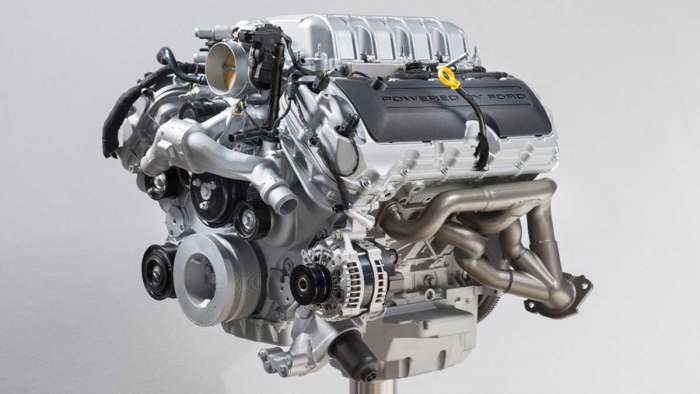
‘Combustion engines really aren't going anywhere for quite some time’
In an article published by NPR, Bill Visnic, editorial director at the Society of Automotive Engineers, said the above quote and laid it out there. As director of SAE he certainly has his finger on the pulse and would know what he’s talking about.
In the same NPR article, Sam Abuelsamid, an auto analyst with Navigant, said: "Even if ... 100 percent of vehicles sold were electric starting today, it would still take 20 to 25 years to replace the entire vehicle fleet with electric vehicles."
Clean ICE
Today’s gasoline-powered vehicles have more technology than ever. With smaller engines and turbo boosting and direct injection, today’s internal combustion engine runs cleaner and more efficiently than ever.
So it begs the question, is a mass exodus from ICE necessary? Even Mary Nichols, who heads the California Air Resources Board, said in the NPR article that today’s combustion engines are cleaner than they’ve ever been.
"I started working in this area of air pollution control back in 1971," she told NPR. "And in that time, the air emissions from internal combustion engines have been slashed by over 90 percent — twice.”
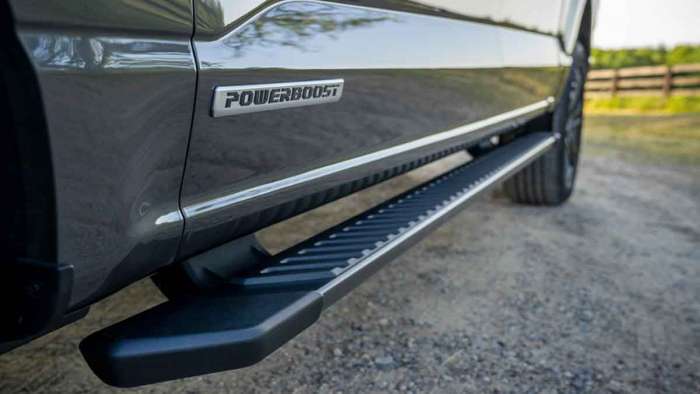
Still on the fringe
The stat I can’t get past and when having a debate about EVs, it’s hard to ignore. Consumer Reports claims in their “Green Choice” survey that a majority of consumers, 61% in fact, claim that tailpipe emissions are a factor in choosing a vehicle to purchase or lease.
If this is true, and color me skeptical, then why are EVs nothing more than a fringe vehicle with so few sales? EVs, at present are nothing more than a blip in the big picture of vehicular purchases. Tesla, not surprising, leads the way in total EV sales, but even their best-selling vehicle barely hits 100,000 units. Compare that to the 900,000 units Ford sells of the Ford F-150 every year. Ram too, General Motors as well.
You mean to tell me that 61% of the average consumer uses emissions as a guiding factor, and still chooses to buy a pickup truck? We shall see how well the new PowerBoost Ford F-150 hybrid sells. Sure it has a lot of perks, including a 7.2 kW generator, but is that plus slightly better fuel economy a factor for the truck consumer?
I remain skeptical and question any survey that insinuates otherwise. As Ford plunges forward with the Mustang Mach-E, a vehicle that can rival the Tesla on long range, this will be an important vehicle to show where the American consumer is. Have they just been waiting for a longer-range SUV or car that wasn’t named Tesla? With so many auto manufacturers launching real EV contenders, the next couple of years will show us a lot.
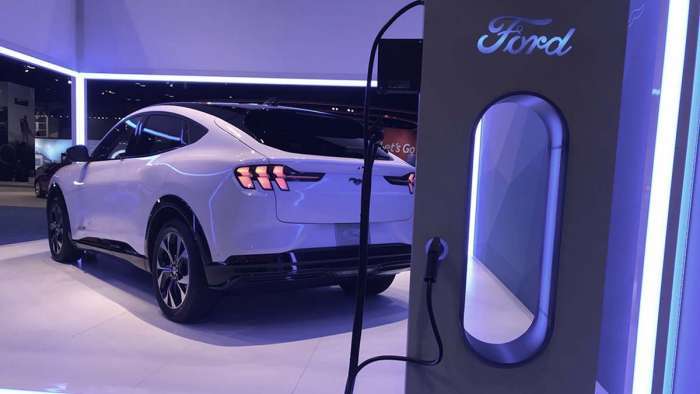
Coexistence is the key
I’m 100% in favor of auto manufacturers investing in electrification. Ford, I believe is saying and doing many of the right things. They’ve toned down the rhetoric that GM seems to have been drawn toward.
As GM announced a plan to eliminate production of gas-powered vehicles and only produce EVs by the 2035, Ford has resisted committing fully like that. And that’s wise. But, it hasn’t stopped Ford from doubling down on their commitment to electrification either.
“The transformation of Ford is happening and so is our leadership of the EV revolution and development of autonomous driving,” said Ford President and CEO Jim Farley. “We’re now allocating a combined $29 billion in capital and tremendous talent to these two areas, and bringing customers high-volume, connected electric SUVs, commercial vans and pickup trucks.”
My final take is this: Embrace the future, but don’t do so without paying attention to the consumer. Stop trying to convince them of what they want and listen to their needs. A slow, logical, reasonable approach to electrification is wise. Dip your toe into the electrification pool, don’t dive in. I believe General Motors is on the high board and about to make that plunge and it could be costly. Meanwhile, I believe Ford is taking a more cautious, and therefore, reasonable approach.
And as people grouse and complain about the upcoming electrification of the Ford F-150 or the Mustang Mach-E, they need to realize that these vehicles might very well prove out the EV market and shape the future.
I want to hear your take. Do you agree that EVs are being too obviously overhyped to try to convince an unwilling consumer? Or am I off base? Leave me your thoughts in the comments below.
Jimmy Dinsmore has been an automotive journalist for more than a decade and been a writer since the high school. His Driver’s Side column features new car reviews and runs in several newspapers throughout the country. He is also co-author of the book “Mustang by Design” and “Ford Trucks: A Unique Look at the Technical History of America’s Most Popular Truck”. Also, Jimmy works in the social media marketing world for a Canadian automotive training aid manufacturing company. Follow Jimmy on Facebook, Twitter, at his special Ford F-150 coverage on Twitter and LinkedIn. You can read the most of Jimmy's stories by searching Torque News Ford for daily Ford vehicle report.


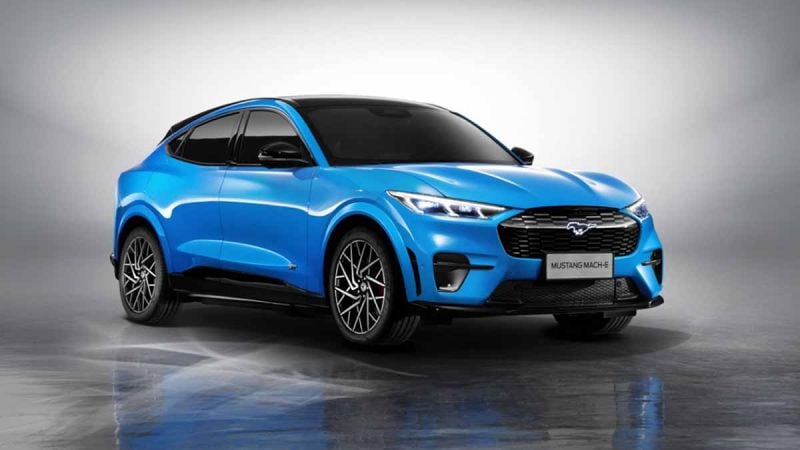





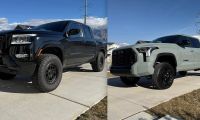

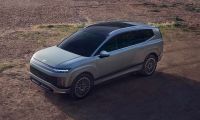
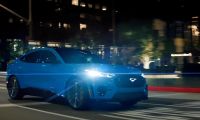
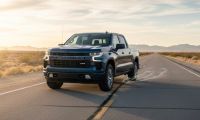
Comments
Thanks for giving the amazing
Permalink
Thanks for giving the amazing article, it is really useful for us about the automobile engines. Good Content.
Thanks for giving the amazing
Permalink
Thanks for giving the amazing article, it is really useful for us about the automobile engines. Good information.
I think after 2025 it would
Permalink
I think after 2025 it would be a bad investment to purchase a new ICE machine. I think a buyer would not be able to sell it or trade it in by 2035.
Thank you for providing such
Permalink
Thank you for providing such an informative essay on automotive engines; it is quite beneficial to us.
Thanks for giving amazing
Permalink
Thanks for giving amazing article
Speaking as an European
Permalink
Speaking as an European [Irish], I would say to all my American friends [or some of them at least !], that those who advocate the continuance of the IC engine should remember that there is no escaping the fact that there is only a limited amount of oil left in the world [quite apart from the fact that continuing to burn oil is suicidal in the long-term [in the sense that it is leading to disastrous climate events e.g. fires in Ca., Australia & parts of Europe as well as floods etc.];
Bio fuels are a step in the right direction in prolonging the IC engine, to be sure, but in the long term, INMO, electrification of transport is the only answer?
Best wishes to all my American cousins,!- T O`D.
Thanks for giving amazing
Permalink
Thanks for giving amazing article, it is really useful for us about the automobile engines.
Thanks for sharing great
Permalink
Thanks for sharing great content, which is very important for us about the car engines.
Thank you for providing such
Permalink
Thank you for providing such an informative essay on automotive engines; it is quite beneficial to us.
Thanks for giving amazing
Permalink
Thanks for giving amazing article, it is really useful for us about the automobile engines.
I just don't see the oil/gas
Permalink
I just don't see the oil/gas industry and the gigantic American "car culture" allowing the ICE to die. No more muscle cars, no racing, no "tinkering" on engines. I can't see middle America going for that. Places like Cali and the Pac Northwest maybe, but not "blue collar" America.
Thanks for giving amazing
Permalink
Thanks for giving amazing article, it is really useful for us about the engines.
Thank you for providing such
Permalink
Thank you for providing such an informative essay on engines; it is quite beneficial to us.
Thank you for providing such
Permalink
Thank you for providing such great information about the car engines
Is anyone computing the
Permalink
Is anyone computing the increased electricity production needed to power a country (or world) with all electric vehicles? It is doubtful that the electric companies could meet the demand. Even if they could, you are merely shifting WHERE the pollution/emissions will occur. Over 60% of United States electricity production comes from goal or gas fired electric plants. Nuclear picks up most of the rest. And what about the failings of dealing with nuclear waste? Do you really want to increase that with all the horrific genetic abnormalities nuclear causes? SO if you increase demand for electricity you will increase the pollutants / emissions / waste coming from these electric plants. And while everyone needs power in whatever form, I am sure most do not want the plant in their backyard. So in the end is there really a reduction in pollution? Or is it simply a shift in the location and types? There is also the argument about not putting all of your eggs in one basket. If you only have one energy type source powering all of your energy needs, that is a disaster waiting to happen. Variety is the spice of life (as the author of this article alludes to). And so it should be in terms of energy-VARIETY.
Thank you for providing such
Permalink
Thank you for providing such an informative essay on automotive engines; it is quite beneficial to us.
Thanks for giving amazing
Permalink
Thanks for giving amazing article, it is really useful for us about the automobile engines.
Thank you for sharing the
Permalink
Thank you for sharing the great content, which is very essential for me to know more about the cars and the engines
Good to read the article!
Permalink
Good to read the article! Here we provide, Get the best used car engines for sale in USA. We are offering the used car engines all over the USA.
Thank you for sharing such
Permalink
Thank you for sharing such valuable information, which is necessary about cars.
Thank you for providing such
Permalink
Thank you for providing such a great information about the car engines
Good Information
Permalink
Good Information
which is very essential for me to know more about the cars and the engines.
Thanks which is very
Permalink
Thanks which is very essential for me to know more about the cars and the engines
I am happy to find this post
Permalink
I am happy to find this post Very useful for me, as it contains lot of information about Used Kia Rio Engines. A very amazing post thanks for sharing with us.
Thank you for sharing this
Permalink
Thank you for sharing this fascinating study on automobile engines; it will be extremely beneficial to us.
Thank you for sharing such
Permalink
Thank you for sharing such valuable information, which is necessary about cars.
Thank you for sharing such
Permalink
Thank you for sharing such valuable information, which is necessary about cars.
Thanks for sharing great
Permalink
Thanks for sharing great content, which is very important for us about the car engines. Thank you. Good information.
Thank you for providing such
Permalink
Thank you for providing such an informative essay on automotive engines; it is quite beneficial to us. Thank you. Good information.
Thanks for sharing great
Permalink
Thanks for sharing great content, which is very important for us about the car engines.
Pagination